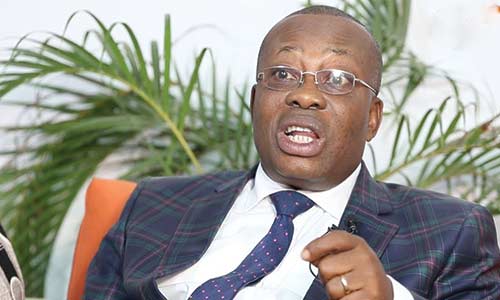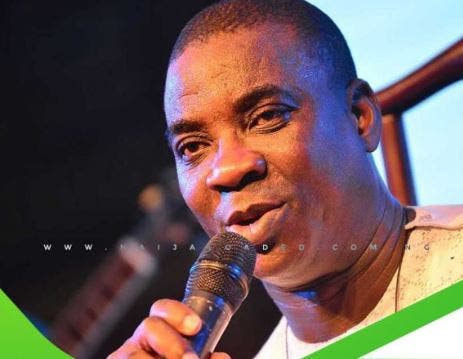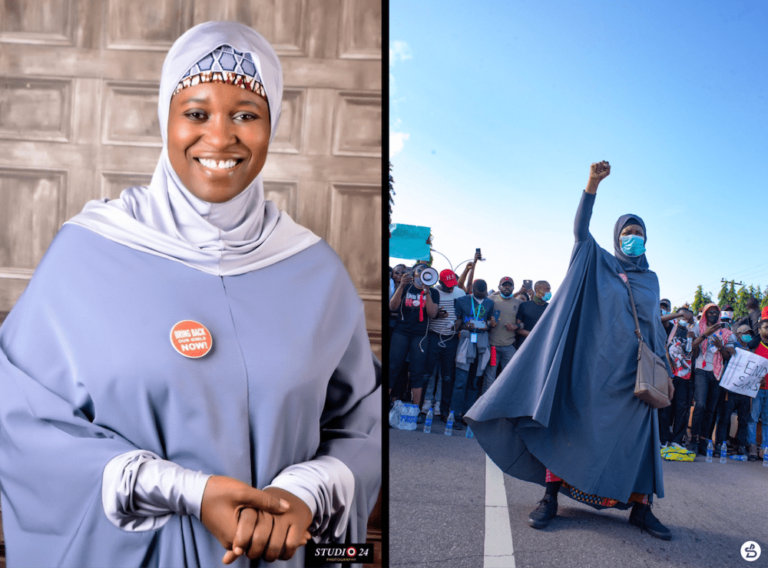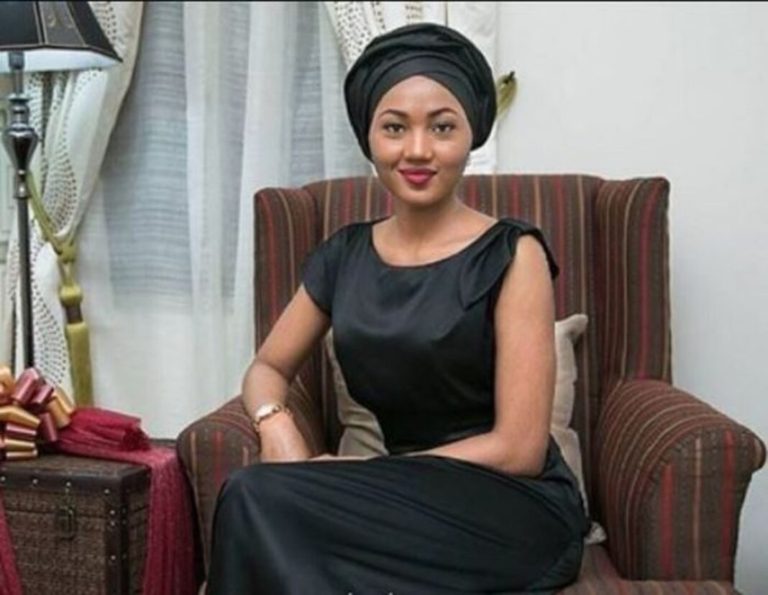The Global Network for Human Rights (GNHR) has vowed to drag instigators of violence that led to the killing of policemen and destruction of properties during the EndSARS protests to the International Criminal Court.
The group, at a press conference on Friday in Abuja, said these individuals must be brought to justice for their roles in inciting “massive terror on the streets”.
Coordinating chairman,
Adulmalik Alfa Esq, speaking on behalf of the group, said these persons exploited the socio-economic challenges of the country to prime the population for mob action.
The human rights group said Femi Falana, Aisha Yesufu, Nnamdi Kanu, DJ Switch among others were behind this vicious act.
Recall that the Inspector General of Police, Adamu Mohammed, had said 22 of his officers were killed during the violence.
And according to the group, Femi Falana, in particular, should be held responsible as the known face and voice of the violent aspects of the protests.
GNHR said it has evidence to back this claim and would present it to ICC with documentary evidence of Femi Falana’s involvement in inciting those that carried out this pogrom against law enforcement officers and other innocent Nigerians.
The rights group, however, called on the media, all Nigerians and the international community to “help us in bringing about justice for innocent security operatives that were murdered by these violent protesters”.
Read the full statement below:
Gentlemen of the press, we are pleased that you can join us for this press conference despite the massive terror on the streets that has been unleashed on the country by saboteurs.
We will like to start by clearing the air about a misconception that is making the round in terms of situating the cause of the violent protests across the countr .countrye is a tendency to tie the start of the protest to the agitation against police brutality and abuse of human rights, particularly by the defunct Special Anti-Robbery Squad (SARS), which has now been christened #EndSARS. The reality, however, is that the singular incidence that provoked the protest could be described as a mere trigger for something that brewed over some time.
Before the protests ever started, there has been a systematic campaign of incitement by a well-heeled circuit, who exploited the socio-economic challenges of the country to prime the population for mob action. They picked on the day to day challenges that are not peculiar to Nigeria as means of goading the population to rebel against the government.
We will name a few of these people, those that we consider as the arrowheads of the well-oiled propaganda machine that poisoned the minds of Nigerians to attempt destroying their own country. We believe these are the people to be held responsible by their leadership position and the inciteful contents of the messages they have put out on their social media accounts, media interviews, statements and utterances.
On the list are: Chief Femi Falana, Falz (Folarin Falana), Nnamdi Kanu, Obianuju Catherine Udeh (DJ Switch), Aisha Yesufu, Reno Omokri, Deji Adeyanju, Dino Melaye, David Oyedepo, BurnaBoy, Paul Okoye, Ayo Makun amongst others.
It is on record that all the above-named persons contributed in one way or the other is ramping up public anger much before the protests began. They then intensified the incitement of people in multiple folds in the early days of the protests such that their actions can be directly linked to the outbreak of violence. They sustained this incitement until it became clear that the violence, arson and looting of government and private property were getting out of hand.
It was observed that some of these celebrity activists and clout chasers backed down and sort of distanced themselves from the negative stance they had maintained on the protests, apparently to evade responsibility for the killings and destruction of property that they had triggered.
We noted that Chief Femi Falana has been particularly vociferous in inciting people to keep up the protests. This is even though policemen and other law enforcement personnel were being attacked and killed. It is therefore pertinent to hold Femi Falana responsible as the known face and voice of the violent aspects of the protests. We are convinced that he knows more than he is letting on because he continued to support the protests even when the fugitive leader of the terrorist Indigenous People of Biafra (IPOB), Nnamdi Kanu was coordinating the mob and identifying where and who to attack.
Consequently, we are resolute to make Femi Falana answer for his crimes against Nigeria in the course of the protests. These include:
- Incitement of the population against the government
- Incitement of the population against public office holders with intent to cause them harm
- Maliciously spreading information known to be false with intent to incite violence
- Providing propaganda support for terrorist attacks through the aiding of attacks carried out by members of a proscribed terrorist group
- Making of utterances that incited people to kill policemen on legitimate duty
- Making of statement that incited people to kill citizens of Nigeria
- Making of statement that resulted in mobs destroying government-owned assets and private assets.
Gentlemen of the press, as a result of Falana’s incitement, with specific reference to the Oyingbo incident, where BRT Buses were burnt and several policemen killed, our network has taken the bold decision to drag Falana before the International Criminal Court at the Hague in the course of the next seven days.
We have pulled our facts together as follow:
OYIGBO ATTACK SUMMARY OF INCIDENT REPORT:-
Number of Hoodlums arrested – 21
Number of Policemen Killed — 3
Number of Police Stations burnt –3
Number of Police Station Vandalised –1
Number of Hoodlums killed — 4
NAMES OF POLICEMEN KILLED ARE AS FOLLOW:-
- AP/No. 241542 Inspr. Sunday Dubon— APC Driver Attached to Anti-Kidnapping Unit (AKU) killed and burnt to ashes.
- F/No. 414018 Sgt. Swawale Ornan — Attached to 19 PMF on Special Duty at Oyigbo, killed and burnt to ashes.
- F/No. 424944 Sgt. Umunna Uchechukwu—- serving in Afam Police Station, his leg and hand were cut off and burnt to ashes.
We shall be tendering these to the ICC with documentary evidence of Femi Falana’s involvement in inciting those that carried out this pogrom against law enforcement officers and other innocent Nigerians. We shall also be drawing the attention of the ICC to the fact that Falana ran this campaign of incitement as a family business in which he was actively supported by his son, Falz (Folarin Falana) in partnership with the wanted IPOB leader, Nnamdi Kanu.
We hereby use this medium to solicit the support of the media, all Nigerians and the international community to help us in bringing about justice for innocent security operatives that were murdered by these violent protesters.
Thank you all.










